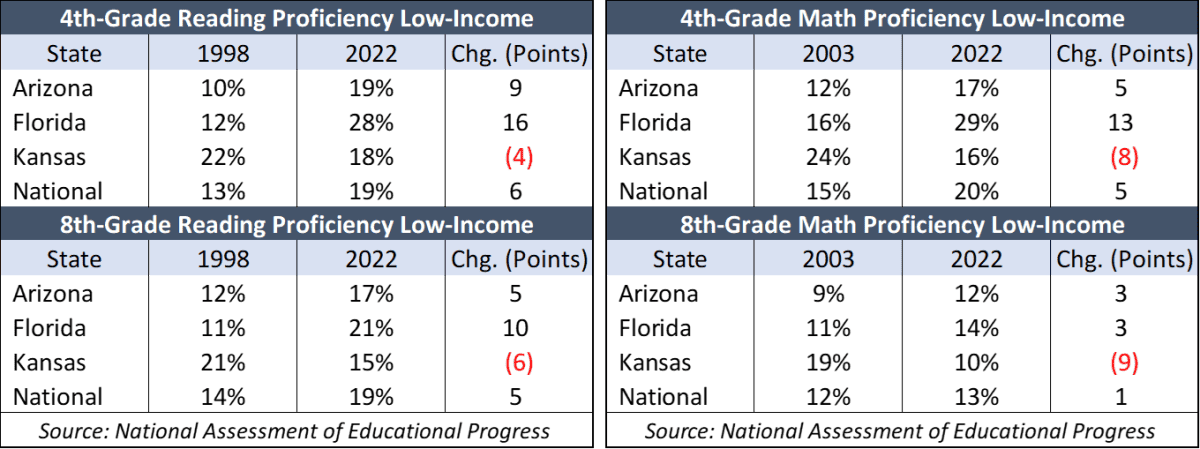With the stroke of her pen, Alabama Governor Kay Ivey signed into law the state’s Creating Hope & Opportunity for Our Students’ Education (CHOOSE) Act, making the Yellowhammer State the 11th in the nation to offer universal or near-universal educational choice programs. The other states are Arizona, Arkansas, Florida, Indiana, Iowa, North Carolina, Ohio, Oklahoma, Utah, and West Virginia.

Robert Enlow is President and CEO of EdChoice, a leading advocate for school choice in the U.S.:
“2023 was the Year of Universal Choice, and Alabama policymakers showed us today that this isn’t a fleeting trend. It’s here to stay. Leaders across the country have come to recognize that they can take bold action to empower families and give students a brighter future.”
The program is expected to launch for the 2025-2026 school year, first welcoming students from low- and middle-income families and broadening in subsequent years to include all students. Students participating in the program will be eligible to receive Education Savings Accounts (ESA) valued at up to $7,000. The ESAs may be used to fund tuition or approved educational goods and services, including expenses such as curriculum, tutoring, computers and software, and more.
There is momentum behind the school choice movement. Last year, eight states either created new programs or expanded existing ones. Alabama is the first in 2024, and Enlow believes this election year may be unique:
“While legislative bodies typically avoid enacting transformative policy reform in election years, 2024 is shaping up to be different, as policymakers are seeing that educational choice is overwhelmingly popular among parents and adults, supported by robust research, and legally sound.” Enlow added, “Alabama is the first state to take a stance this year, but we don’t expect it to be the last.”
All students benefit in states with robust school choice opportunities
Having robust school choice opportunities gives parents more options to find the school that best meets their children’s needs. It has also been proven to help students who choose to stay in traditional public schools.
Florida and Arizona have the longest history with school choice. Both states have seen proficiency gains that far exceed the national average, especially for low-income students, who comprise the majority of students taking advantage of choice programs.
Arizona, Florida, and Kansas have participated in the National Assessment of Educational Progress (NAEP) Reading test since 1998. Between 1998 and the most recent results from 2022, low-income 4th-graders in Arizona jumped from 10% proficient to 19%. Florida moved to the best in the nation, going from 12% to 28%, while Kansas students dropped from 22% to 18%, and the national average improved six points, from 13% to 19%.

The same is true for low-income students in 8th-grade Reading and in 4th-grade and 8th-grade Math: Arizona beat or matched the national average gains, while proficiency declined in Kansas.
The Kansas Legislature passed a tax credit scholarship program for low-income students in 2014 and has expanded the program several times since. Unfortunately, efforts to add education savings accounts and other choice options have fallen short, as too many legislators (mostly Democrats and rural Republicans) worry more about the impact on schools than on students.



